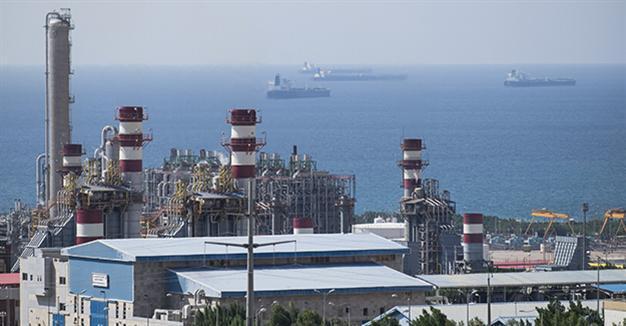Iran doesn’t want oil price war, may limit output rise: Official
NEW DELHI - Reuters

A general view shows a unit of South Pars Gas field in Asalouyeh Seaport, north of Persian Gulf, Iran November 19, 2015. REUTERS/Raheb Homavandi
Iran wants to avoid an oil price war with rival producers and only gradually lift exports once sanctions against it are lifted, a senior official said, in what would be a major shift away from planning to ship as much fuel as soon as possible.Iran, which has some of the world’s biggest petroleum reserves, has repeatedly urged fellow members within the Organization of the Petroleum Exporting Countries (OPEC) to make room for a supply jump from the Islamic Republic, pledging to ramp up exports as soon as sanctions on its oil industry are lifted under a nuclear deal with world powers.
A move to limit export growth would be a major shift in Iran’s policies in an environment when most OPEC and non-OPEC producers are fighting for market share despite a growing global oil glut, which has already cut crude prices by two-thirds since 2014, hurting energy firms and oil exporting nations.
“We don’t want to start a sort of a price war,” Mohsen Qamsari, director general for international affairs of the National Iranian Oil Company (NIOC), told Reuters by telephone.
“We will be more subtle in our approach and may gradually increase output,” Qamsari said. “I have to say that there is no room to push prices down any further, given the level where they are.”
He did not give any detail on how much Iran would be prepared to moderate a rise in its shipments but said Iran would not offer further discounts to lure customers. Currently, Iran offers 90-day credit, free shipping and some discounts on crude prices to buyers in India.
More cautious words
The more cautious words from Iran come a week after relations with its main Middle East rival and top oil exporter Saudi Arabia broke down over the execution of a prominent Shi’ite cleric who was revered in Iran.
A more moderate re-entry into markets would suit Saudi Arabia and other Middle East OPEC members who are already locked into an aggressive fight for market share.
Iranian crude oil exports have fallen to around 1 million barrels per day (bpd), down from a peak of almost 3 million bpd in 2011, before western sanctions against Tehran started.
Iran previously said it planned to raise oil output by 500,000 bpd post-sanctions, and by another 500,000 bpd shortly after that.
Even a gradual increase in its exports would come at a time of a global glut, with producers around the world pumping hundreds of thousands of barrels of crude every day in excess of demand.
Oil prices are near 11-year lows below $37 per barrel and some analysts like Goldman Sachs say prices may tumble as low as $20 a barrel as supplies keeps rising. To sell additional barrels but avoid adding to ballooning oversupply, NIOC is looking at buying stakes in existing and new refineries overseas, Qamsari said, without specifying countries or companies.
















